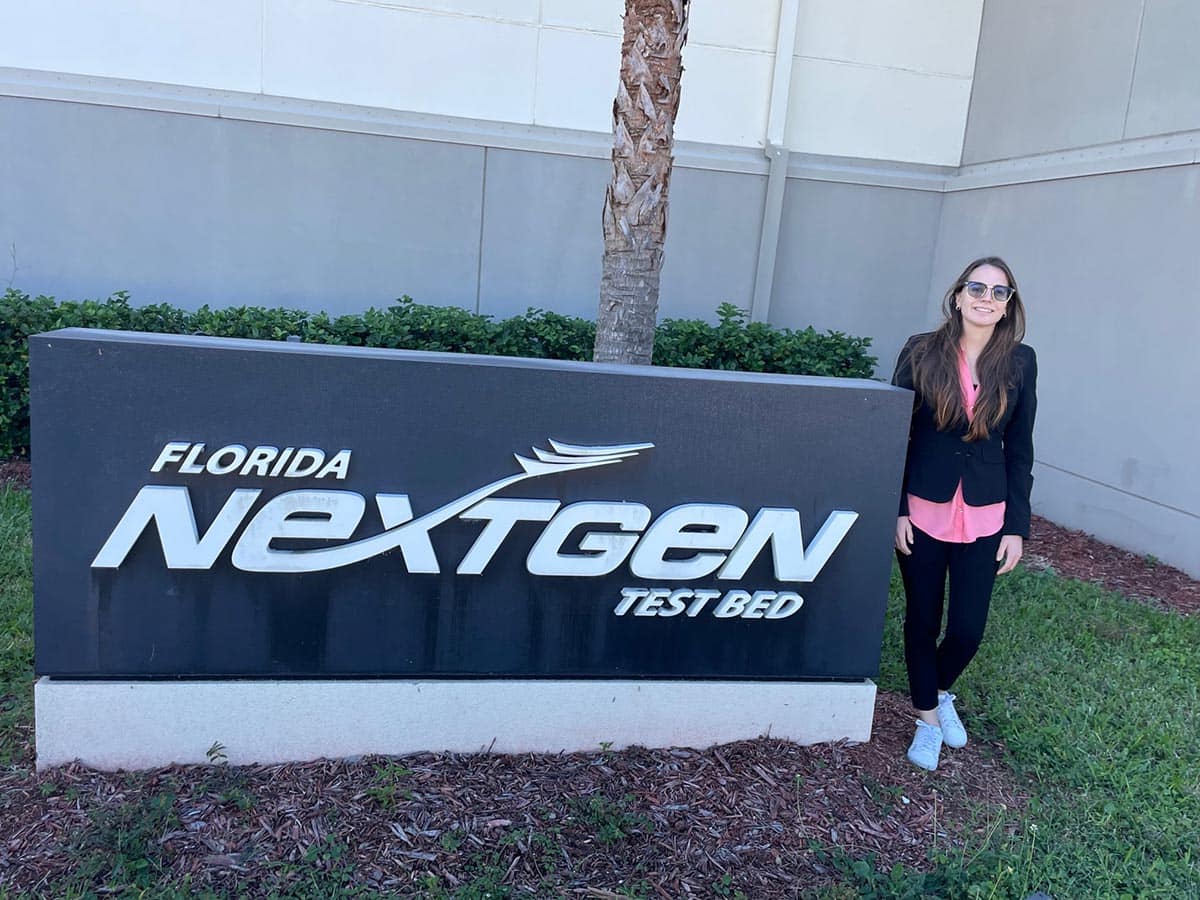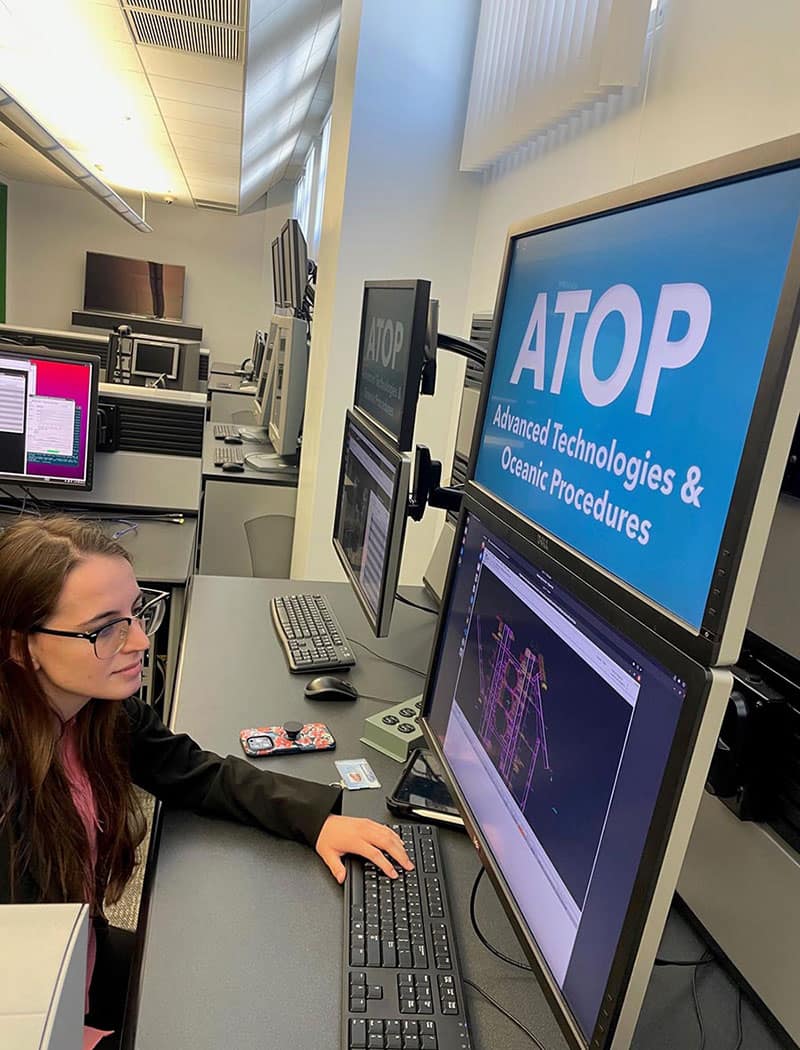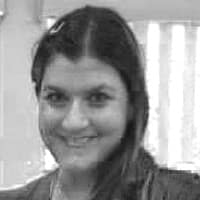Computer Science Student Gains Valuable Experience Contributing to Projects at Florida NextGen Test Bed

Embry-Riddle Aeronautical University senior Carly Bosma is writing computer code for a Florida NextGen Test Bed (FTB) project with a goal to try and help improve the safety and efficiency of airport taxiway traffic. While the research remains preliminary, Bosma is gaining valuable experience to benefit her future career. The work is also setting the stage for continuing advancements in aviation safety.

Embry-Riddle student Carly Bosma is writing computer code for a Florida NextGen Test Bed project as part of her assistantship with the agency. (Photo: Embry-Riddle/Melanie Stawicki Azam)
“The project allows for the communication of digital taxi instructions between ground and air, and modernizes the way it is currently done,” said Bosma, a Computer Science major with a Cybersecurity Engineering concentration and Project Management minor.
Bosma is one of several Embry-Riddle students gaining valuable experience as student assistants at FTB, which is part of a Federal Aviation Administration initiative to modernize the nation’s air traffic control systems and make air travel safer and more efficient. FTB was established in 2008, and the FAA contracts Embry-Riddle to operate the facility, located near Daytona Beach International Airport.
“It’s a great relationship Embry-Riddle has with FTB because I’m getting assistance on my project, and students are learning things in the lab,” said Bruce McCandless, the FTB systems engineer working with Bosma. “I think there are pieces of this Carly can walk away with that could help her in her career.”
Chris Kokai, director of operations at FTB, said each project hires at least one student assistant for project management or research.
“More than 90% of FTB student assistants have gone on to employment opportunities in the aviation industry, said Kokai.
Another plus for students is that the FAA waives the two-year work experience requirement for entry-level engineers at the FAA if applicants have FTBwork experience, he added.
Bosma started her internship at FTB in July, and she has learned everything from FAA air traffic management procedures to professional etiquette.
“I also found that I really like airport operations and working on software,” she said.
Finding the Right Path
Bosma said she had never considered a career in computer science until she happened to attend a summer engineering program at Embry-Riddle. She had spent most of high school focused on studying American Sign Language, with plans to become an interpreter.
“But I took that summer program before my senior year, and everything changed,” said Bosma. “My brain was so much more engaged.”
One of the program’s classes was focused on computing for engineers, and she discovered she loved coding.
“It’s like figuring out a puzzle, and it never gets boring because there is always something new,” Bosma said.
More than 90% of Florida NextGen Test Bed student assistants have gone on to employment opportunities in the aviation industry.
She has excelled in her studies and was recently chosen as one of 10 undergraduate students awarded an Intuitive Machines/Columbia Sportswear Advancing Women in Technology Program scholarship. Bosma has also discovered that she enjoys teaching after serving as a teaching assistant for a few classes on the Daytona Beach Campus, including a cryptography course.
She balances her schoolwork and assistantship with a part-time job waitressing at C’s Waffles in her nearby hometown of New Smyrna Beach, Florida, where she has worked since she was 15.
“I’m not thinking about my next school assignment when I’m there,” Bosma said. “I think about the people I’m talking to and their lives.”
Bosma plans to graduate with her bachelor’s degree this spring but will stay at Embry-Riddle to complete her accelerated master’s degree in Software Engineering.
Eventually, she said she may want to pursue her doctorate and become a professor, but her time working at FTB has really reinforced to her the value of having on-the-job experience.
“Working in industry is really important, so I would like to teach after I have that knowledge to share with students,” said Bosma.

 Melanie Stawicki Azam
Melanie Stawicki Azam